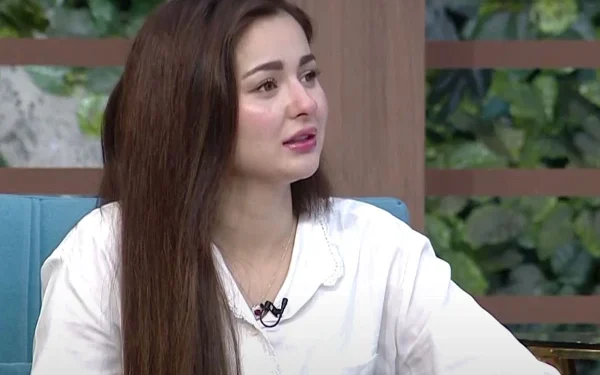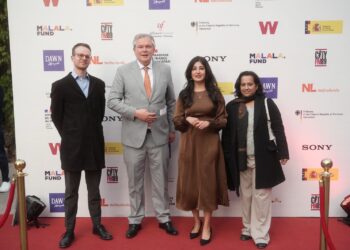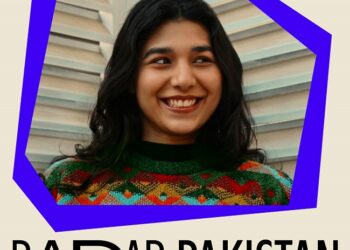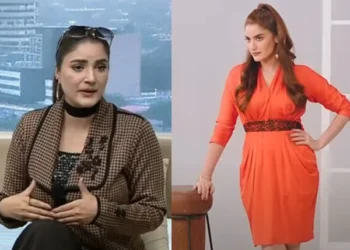Introduction: A Cry for Justice from the Entertainment Industry
In a country where honor killings remain a grim reality, voices from Pakistan’s entertainment industry are refusing to stay silent. A heartbreaking incident in Degari, Balochistan, has once again shocked the nation, reigniting conversations about gender-based violence, honor culture, and the urgent need for legal reform.
The gruesome incident—captured on video and circulated widely online—shows armed men brutally murdering a man and a woman in the name of “honor.” The tragedy has sparked widespread outrage, and among those raising their voices are two powerful female figures in Pakistani showbiz: Hania Amir and Naeema Butt.
Through emotionally charged social media posts, both actresses have not only condemned the heinous act but have also questioned deep-rooted patriarchal norms that continue to perpetuate violence against women in Pakistan.
What Happened in Degari, Balochistan?
The horrific incident in question took place in Degari, a coal-rich area located near Quetta, the capital of Balochistan. According to initial reports, a man and a woman were accused of having an illicit relationship, which allegedly brought “dishonor” to their respective families.
In the disturbing video that surfaced online, the victims—a young woman and a man—are seen standing a few feet apart while armed men, believed to be family or tribal members, execute them in cold blood. The killings are carried out without any due process, trial, or legal authority—merely in the name of so-called “honor.”
The footage quickly went viral, drawing condemnation from activists, journalists, and citizens across the country. As outrage grew on social media, local authorities were pressured into taking notice, and an investigation has since been launched.
Hania Amir’s Powerful Statement: A Society Under Scrutiny
Among the most viral reactions to the Degari tragedy was a bold and haunting message shared by renowned actress Hania Amir. Known for her roles in hit dramas and films as well as her social media influence, Hania posted a black background with a single, thought-provoking sentence:
“If women start killing in the name of honor, not a single man will be left alive in the society.”
Though brief, the statement delivered a devastating critique of gender inequality in Pakistani society. Hania offered no caption, yet the implications were loud and clear: women have long been victims of so-called honor, and if they were to retaliate with equal violence, the consequences would be catastrophic.
Her post quickly went viral, with thousands of likes, shares, and comments. Supporters lauded her for breaking the silence and using her platform to call out gender-based double standards in a patriarchal culture.
Naeema Butt’s Message: Cowardice Disguised as Masculinity
Actress Naeema Butt, known for her roles in socially driven TV dramas, also reacted emotionally to the Balochistan killings. Sharing a graphic image from the Degari incident, she captioned it with:
“Have you seen a coward? Look at him with a gun in his hand. Want to see a brave man? Look at him with a Quran in his hand. That’s all the story.”
Her message drew attention to the moral bankruptcy of those who commit acts of violence under the guise of courage, when in reality they are driven by fear, ignorance, and toxic masculinity.
Naeema’s post resonated deeply with followers, who praised her for calling out the false valor associated with honor killings. Her post became a rallying cry for justice, compassion, and a return to true Islamic values that emphasize forgiveness, not vengeance.
Social Media Response: Public Outrage and Demand for Accountability
Following the posts by Hania Amir and Naeema Butt, social media platforms—particularly Instagram, X (formerly Twitter), and Facebook—were flooded with emotional responses. Netizens from all walks of life expressed:
- Condolences for the victims
- Condemnation of tribal justice systems
- Frustration with law enforcement
- Calls for stronger legal protection for women
One user commented on Hania’s post:
“You said it perfectly. If women started acting the way men do in the name of honor, the streets would run red with blood.”
Another added:
“Our society protects murderers while blaming victims. We need justice, not tradition.”
Activists and NGOs, including Aurat March, Women Democratic Front, and HRCP (Human Rights Commission of Pakistan), also issued statements condemning the killings and demanding accountability, arrests, and prosecution of the perpetrators.
Understanding Honor Killings in Pakistan: A Persistent Tragedy
Honor killings—locally known as “karo-kari” in Sindh or by other regional names—are a persistent form of gender-based violence in Pakistan. They occur when individuals (usually women) are accused of tarnishing family “honor” through behaviors considered immoral or improper, such as:
- Choosing their own partners
- Engaging in premarital relationships
- Seeking divorce or autonomy
- Eloping or even being seen in public with unrelated men
According to the Human Rights Commission of Pakistan, hundreds of such murders are reported each year—but countless others go unreported, uninvestigated, or ignored due to tribal influences, bribery, and lack of witness cooperation.
Legal Framework: Are Honor Killings Punishable?
Despite the severity of these crimes, Pakistan’s legal system has historically struggled to hold perpetrators accountable due to loopholes in Islamic and tribal laws.
In 2016, the Parliament passed the Anti-Honor Killing Bill, which closed the forgiveness loophole that previously allowed killers to escape punishment if forgiven by the victim’s family (often the same family who ordered the killing). The new law:
- Mandates life imprisonment for all honor killings
- Removes the right to full forgiveness in such cases
- Treats honor killings as pre-meditated murder
However, implementation remains weak, especially in rural and tribal regions like Balochistan, where parallel justice systems often override national law.
Media Responsibility: Breaking the Silence
The coverage of the Degari incident and the ensuing celebrity outcry has once again proven the power of digital media and public figures in shaping national discourse.
In a society where many crimes are silenced, ignored, or justified through culture and tradition, the outspoken voices of artists, actors, and influencers can play a vital role in:
- Raising awareness
- Demanding justice
- Educating the public
- Pressuring authorities to act
As social media continues to evolve as a tool for social justice, incidents like this underline the need for continuous dialogue, reporting, and activism.
Conclusion: A Nation at a Crossroads
The brutal honor killing in Degari, Balochistan, is not just a tragedy—it’s a symptom of a deeper societal disease. Patriarchal norms, religious misinterpretation, and tribal values continue to place women’s lives in jeopardy across Pakistan.
But the resounding condemnation from the public—and especially from influential voices like Hania Amir and Naeema Butt—offers hope. It shows that change is possible when people refuse to remain silent.
The question now is: Will Pakistan’s legal system rise to the occasion? Will justice be served? Will society reflect, reform, and rise against this systemic violence?
As Hania Amir chillingly put it:
“If women start killing in the name of honor, not a single man will be left alive in the society.”
This sentence may just be a warning, but perhaps it’s exactly what society needs to wake up and rethink what “honor” really means.

























